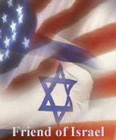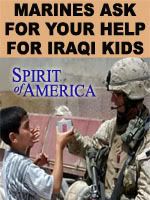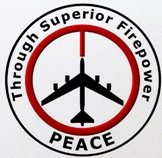My Canadian cousin left a comment on my post about my lonely Protest Warrior action. While she agrees with the notion that our forces have to stay in Iraq because Iraq cannot be surrendered to Iranian Islamo-Fascists, she still asks: "What is Victory?" Indeed, there will be no surrender documents signed in Rheims, Karlshorst or on a battleship. By now it is very widely accepted by friends and foes alike that a Western-style democracy in Iraq is very unlikely in the near future, if ever. What we have in Iraq is insurgency. Thus, our forces are conducting a counter-insurgency campaign. A victory in a counter-insurgency campaign is achieved when the insurgency stops. Unsuccessful counter-insurgency campaigns in recent history are most often associated with American war in Vietnam and the Soviet war in Afghanistan. But there was number of successful counter-insurgency operations. Examples are:
Russian Caucasian War of 1817-1864;
The Philippine-American War (note some anti-American slant of Wikipedia);
Soviet suppression of the Baltic countries;
Soviet suppression of Ukrainian nationalists.
There were more, but this is enough for now. These campaigns were conducted by democracies, an empire and a dictatorship. So, there are quite a few differences between these campaigns. But here is what they have in common:
1. Lack of outside support for the insurgency;
2. Willingness of the government forces to take and inflict casualties;
3. Patience of the government to conduct counter-insurgency operations for many years.
I doubt that the Soviet successes are good examples for us: I don't think we would ever follow in Stalin's footsteps. Thus, perhaps the best example for us is the Philippines, now the loyal ally of the United States. A lady who is a dental assistant in my dentist's office told me stories her grandmother told her (she is a Filipino). Her grandma told her that during World War 2, whenever there was a battle between American and Japanese Navies nearby, the local Filipino fishermen would always rescue the Americans from damaged ships, but finish off the Japanese. Filipinos fought shoulder-to-shoulder with Americans against the Japanese. Manuel Quezon, the first President of the Philippines, did participate in the anti-American insurgency in the early 20th century. Apparently, he used to say: "Damn the Americans! Why don't they tyrannize us more?". At the time he apparently was complaining about the difficulty of getting people to fight against the Americans (despite anti-American slant of Wikipedia). So, I think that a counter-insurgency campaign that turned insurgents into loyal allies could be considered successful. For reference I would recommend The Savage Wars of Peace: Small Wars and the Rise of American Power by Max Boot and Small Wars Manual by United States Marine Corps.
So, what could be defined as victory in Iraq? Simple: when the insurgency is over, there will be victory. We will have to establish presence in Iraq in order to contain and, if necessary, fight against the Iranian Nazis. It will probably take many years to pacify Iraq. We just have to have the patience and political will to wait the insurgency out. We also have to ensure that there is no outside support for the insurgency. It might take some diplomatic or military action to do so. But the most important thing is patience. Without it we will lose simply because we will quit.

















1 comment:
I like your definition of victory. Now if only Olmert would understand it...
Post a Comment